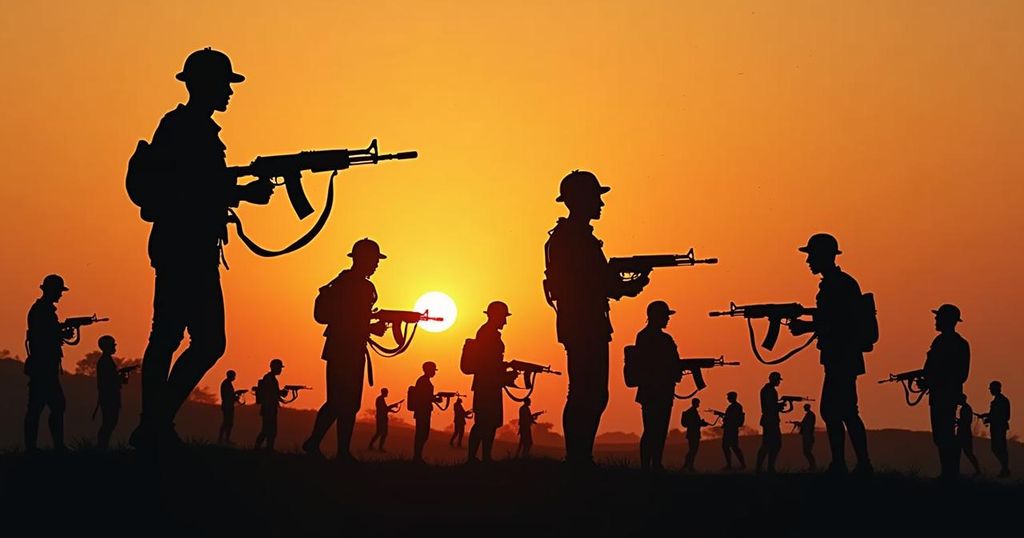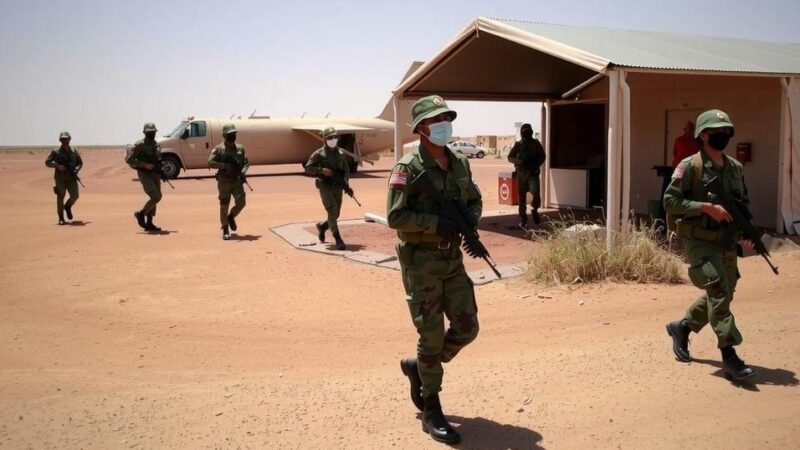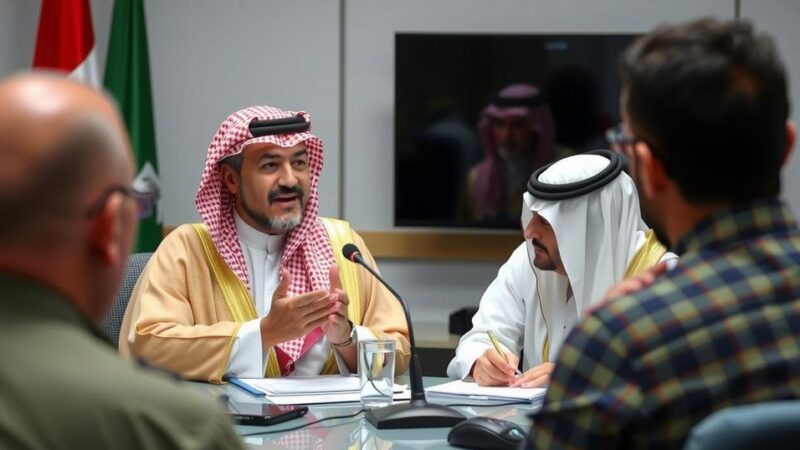The United States has expressed concern over the crisis in Sudan and condemned military solutions while, paradoxically, maintaining a partnership with the UAE, which is reportedly backing the Rapid Support Forces (RSF). This complicity with a nation implicated in atrocities raises questions about U.S. accountability and the efficacy of its humanitarian stance. The situation in Sudan continues to deteriorate as millions face displacement and famine, underscoring the urgent need for a cohesive and truthful diplomatic approach.
On September 23, the White House issued a statement detailing a recent bilateral meeting between President Biden and the President of the United Arab Emirates (UAE), Sheikh Mohamed bin Zayed Al Nahyan. Within the comprehensive document, the close partnership between the United States and the UAE was underscored, and the leaders expressed shared concern regarding the escalating crisis in Sudan. Notably, the statement declared that “there can be no military solution” to the conflict and called for accountability for atrocities and war crimes committed during the ongoing violence. However, this assertion must be scrutinized under the context of the UAE’s involvement in Sudan. Evidence suggests that the UAE has been providing support to the Rapid Support Forces (RSF), a militant group known for its violent actions, including extensive human rights abuses such as sexual violence and ethnic cleansing. This organization is not a legitimate political player but rather a destabilizing force that perpetuates atrocities across the region. Despite international appeals from the African Union and the United Nations, the RSF has continued its brutal campaign in El Fasher, the last significant population center in Darfur that remains resistant to its control. Furthermore, the New York Times reported on September 21 that the UAE’s support for the RSF is cloaked in the guise of humanitarian assistance, significantly undermining the credibility of recognized humanitarian organizations like the Red Cross and Red Crescent. The supplementation of military support with claims of aiding the Sudanese populace creates a dichotomy that not only exacerbates suffering but also raises questions regarding the moral responsibility of the UAE. The unfolding humanitarian crisis in Sudan has reached alarming proportions, with approximately twelve million people displaced and severe famine looming, threatening millions of lives as humanitarian access is systematically obstructed. The divergence between Washington’s public posturing and the actions of its purported ally poses serious concerns. How can the United States assure accountability for the violence in Sudan when it aligns itself with a nation that simultaneously exacerbates the crisis? The juxtaposition of President Biden’s UN address, urging the world to cease arming the warring factions and promote peace, against the backdrop of the UAE’s supportive role for the RSF, presents a stark contradiction. It raises fears of an overarching facade that endangers the credibility of U.S. foreign policy. In summary, one may hope that the flattering framing of the U.S.-UAE relationship was strategically employed to secure a tangible promise from the UAE to withdraw support for forces undermining peace in Sudan. However, absent any corroborative evidence, Biden’s exhortation at the United Nations may appear insincere, leading to a dangerous narrative of complicity in deception regarding the realities on the ground in Sudan.
The ongoing conflict in Sudan has drastically worsened since the inception of hostilities between rival factions. The Rapid Support Forces (RSF) have been implicated in committing egregious human rights violations, prompting widespread condemnation from international bodies. The United Arab Emirates’ clandestine support of the RSF has raised fundamental questions about its role in regional stability and humanitarian efforts, as millions of civilians endure escalating violence and suffering. Moreover, international calls for accountability and substantive actions to ameliorate the humanitarian crisis contrast sharply with political statements that may obfuscate the intertwined complexities of such partnerships.
In conclusion, the recent U.S.-UAE dialogue ostensibly champions a commitment to peace in Sudan while overlooking the UAE’s detrimental involvement in supporting the RSF. As the humanitarian conditions continue to deteriorate, the United States must reconcile its stated objectives with the operational reality of its partners. The credibility of U.S. foreign policy hinges on a genuine alignment between rhetoric and action, especially concerning the grave human costs borne by the citizens of Sudan.
Original Source: www.cfr.org







